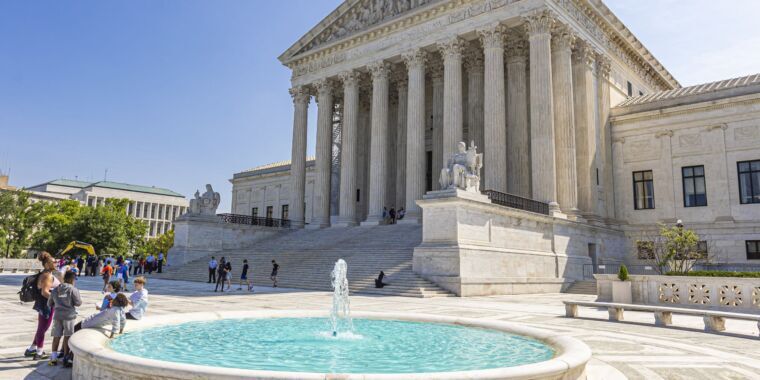- cross-posted to:
- [email protected]
- cross-posted to:
- [email protected]
Four more large Internet service providers told the US Supreme Court this week that ISPs shouldn’t be forced to aggressively police copyright infringement on broadband networks.
While the ISPs worry about financial liability from lawsuits filed by major record labels and other copyright holders, they also argue that mass terminations of Internet users accused of piracy “would harm innocent people by depriving households, schools, hospitals, and businesses of Internet access.” The legal question presented by the case “is exceptionally important to the future of the Internet,” they wrote in a brief filed with the Supreme Court on Monday.



Here’s my guess. Piracy provides a competition against the horrible practices of streaming and entertainment companies that doesn’t otherwise exist, forcing them to provide a better service.
Artists are just a single person making art and their service isn’t gobbled up by the capitalist machine and turned into something user unfriendly. They don’t usually make too much money, unlike huge entertainment corporations, either.
When it comes to piracy, individual content creators often don’t care as long as they get money to live. There have been people who work on video games or movies who say they don’t care if others pirate their work as long as others get to see it. But for AI, it copies and changes the work, stripping the art of its original watermark, and it sets itself up to be a replacement of the artist itself. It doesn’t just spread their work without having you pay for it, it replaces the concept of needing an artist altogether, but only by using their labor in the first place without paying them for it.
If piracy let movie studios replace the idea of needing individual content creators, writers, artists actors, etc then people would feel differently I think. As it is now, people don’t care about big studios, they care about the individual. Piracy currently only really harms the former and not the latter. AI is the opposite.
Copyright is the same for everyone; corporations or people, rich or poor. Financially speaking, this issue has close to 0 to do with individual content creators, much less struggling ones. They are simply not the big content owners.
PR companies know that people care about the individual. So when they shill for a law, they will send in some individual. It’s never about money for corporations or the rich, but always about the “hard-working American”; and then say hello to some Joe, the plumber. I can see why artists on social media would discourage their followers from going to the competition. But the whole copyright angle won’t save anyone’s job.